Are you looking to streamline your contractor work authorization process? Whether you're a business owner or a contractor, having a clear and concise letter template can make all the difference. This guide will walk you through creating an effective authorization letter that ensures everyone is on the same page and sets the stage for a successful project. Ready to dive deeper into the essentials of contractor work authorization? Let's explore further!

Authorization Details: Scope of Work, Project Description.
The authorization document outlines the specific scope of work for the contractor, detailing the responsibilities and tasks to be performed during the project. This includes work to be executed on site, such as structural modifications, electrical installations, or plumbing repairs. The project description clearly states the objectives, timelines, and expected outcomes associated with the project, ensuring alignment between the contractor and the client. Additionally, it may incorporate relevant permits and code compliance requirements for the jurisdiction where the project is located, ensuring adherence to local building regulations. This comprehensive outline serves as a legal agreement to ensure that all parties are aware of their obligations and the standards expected throughout the project's duration.
Contractor Information: Name, Contact, License Number.
Contractor work authorization involves detailed information regarding the contractor's credentials and compliance with regulations. The contractor details include the name of the contractor or contracting business, contact information such as phone number and email address for efficient communication, and license number which indicates the legality and qualifications to undertake specified work. This structured documentation ensures accountability and adherence to local regulations, preventing any legal complications during the project lifecycle. Each piece of information contributes to establishing a professional relationship and assures clients of the contractor's capabilities and legitimacy in the construction or renovation sector.
Terms and Conditions: Payment Terms, Deadlines, Liability.
The contractor work authorization outlines critical aspects for successful project completion in the construction sector, detailing specific terms and conditions. Payment terms stipulate the agreed amounts and timelines for disbursement, emphasizing the importance of full payment upon project milestones or completion, specifically detailing percentages such as 30% upfront and 70% upon finishing. Deadlines highlight the project's start and end dates, often including stipulations for delays, which could impact overall timelines significantly, necessitating clear expectations to avoid disputes. Liability clauses articulate responsibilities in the event of accidents, ensuring that contractors maintain adequate insurance, such as general liability coverage, to protect against potential damages or injuries on the job site, like those occurring in urban environments such as New York or Los Angeles. These carefully crafted terms aim to protect both parties, ensuring clarity and accountability throughout the project lifecycle.
Compliance and Safety Requirements: Certification, Insurance.
Contractor work authorization involves ensuring compliance with safety requirements and proper certifications. Contractors must provide relevant certifications, such as OSHA (Occupational Safety and Health Administration) compliance documents and any necessary trade-specific licenses. Insurance coverage must be verified, including general liability insurance with minimum coverage limits typically around $1 million, and workers' compensation insurance to protect against workplace injuries. Additionally, adhering to local regulations in municipalities like Los Angeles or Chicago ensures that all work meets legal standards, fostering a safe environment for both workers and clients. Regular audits may be conducted to verify ongoing compliance and safety adherence.
Authorization Signatures: Approvals, Date of Authorization.
Contractor work authorization involves several key elements that ensure compliance and agreement between parties. Authorization signatures are critical as they represent official approval from both the contractor and the client. This typically includes signatures from designated representatives of both parties, usually requiring full names and titles to validate authority. The date of authorization, which is the specific day the agreement is formalized, is essential for record-keeping and determining project timelines. Proper documentation contributes to clear communication, thereby minimizing potential disputes throughout the project lifecycle.

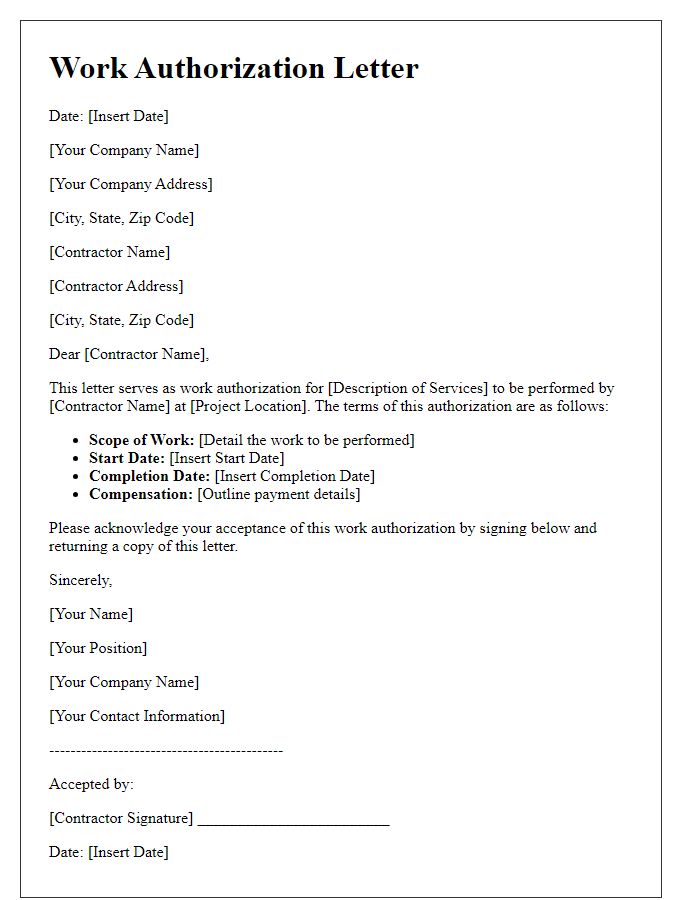
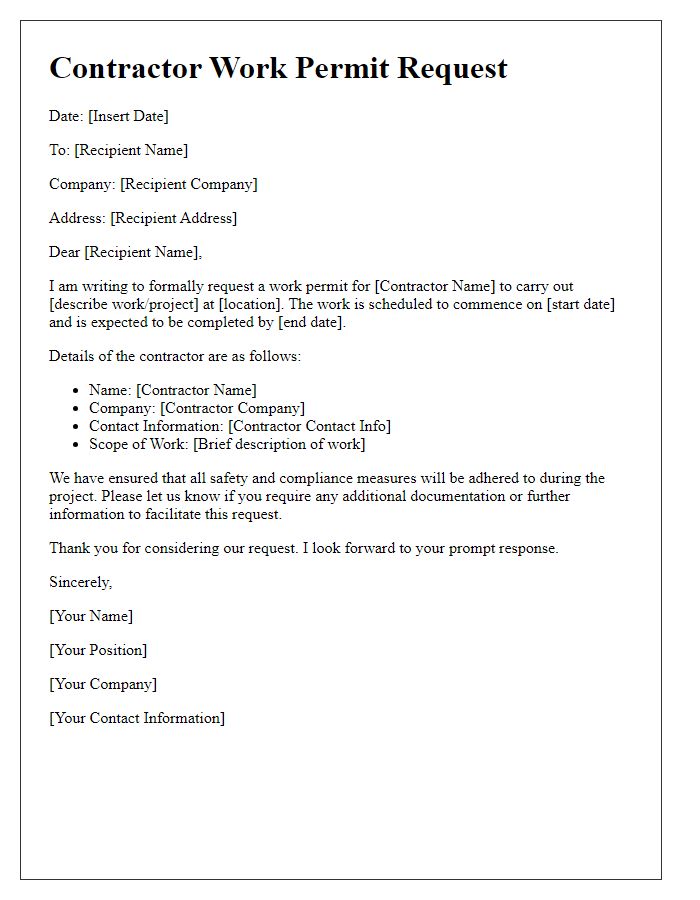
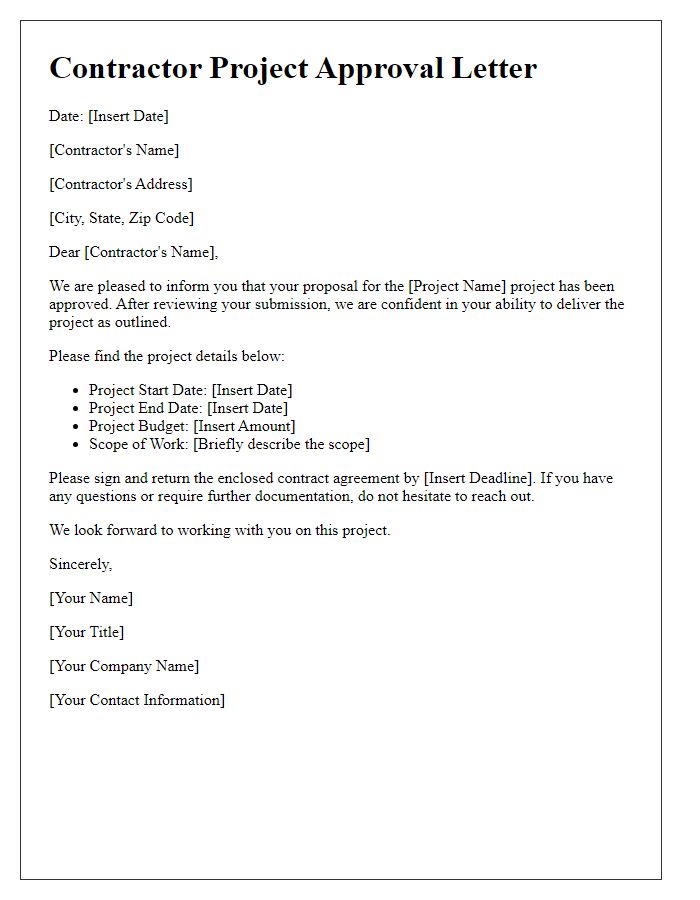
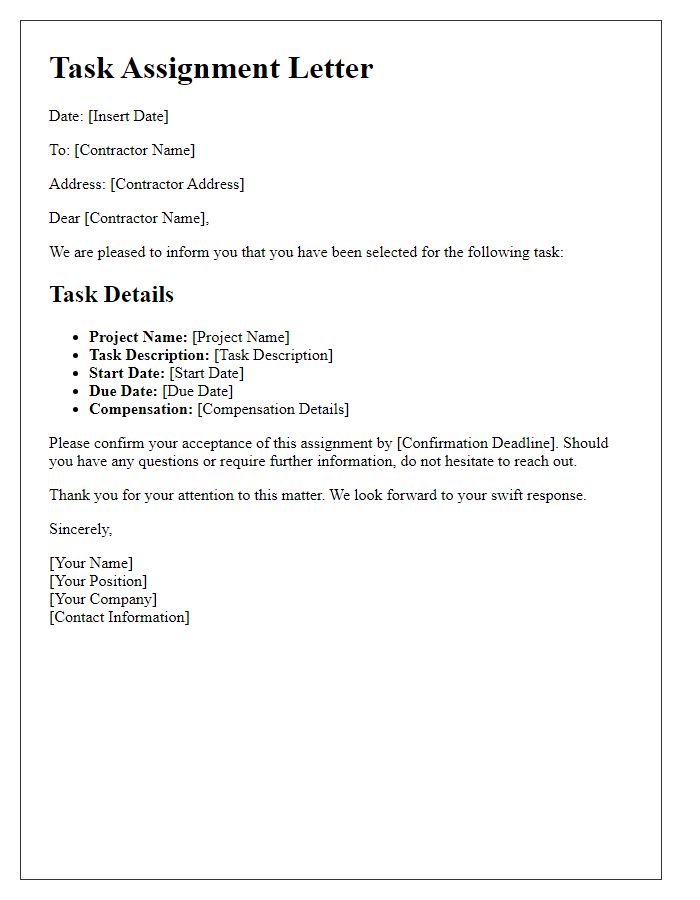
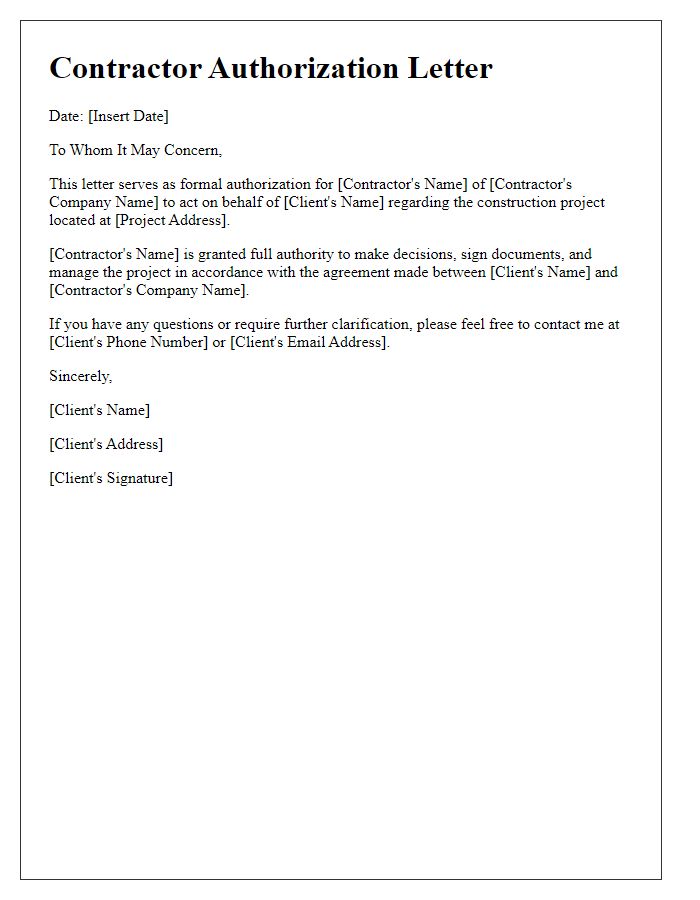
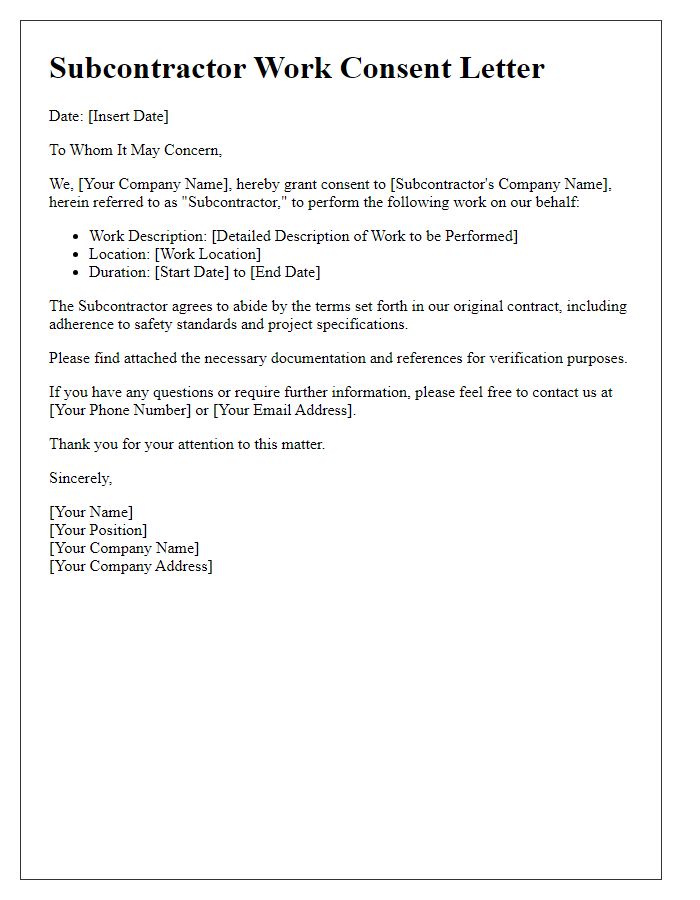
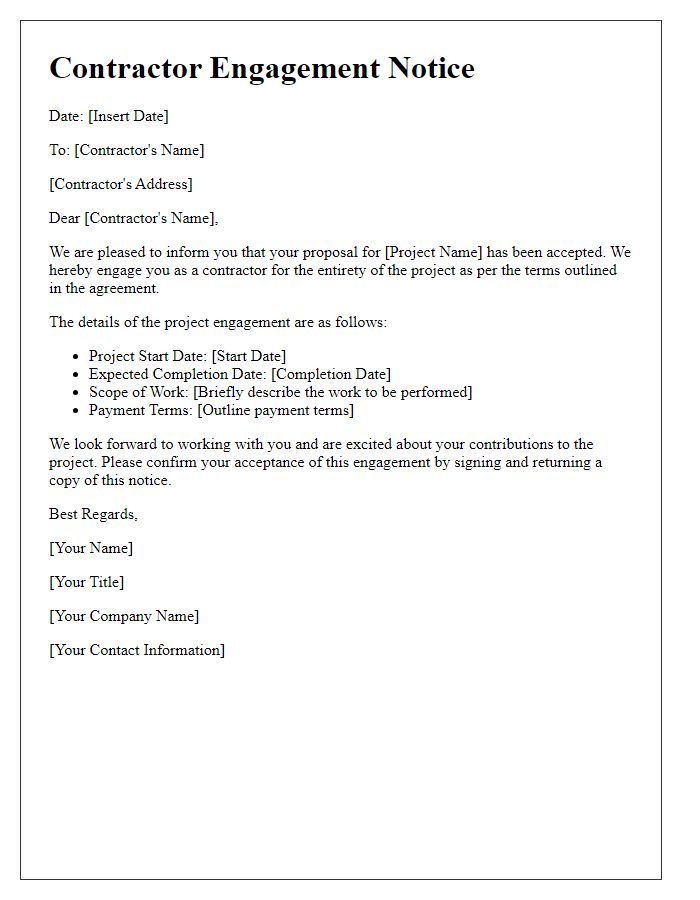
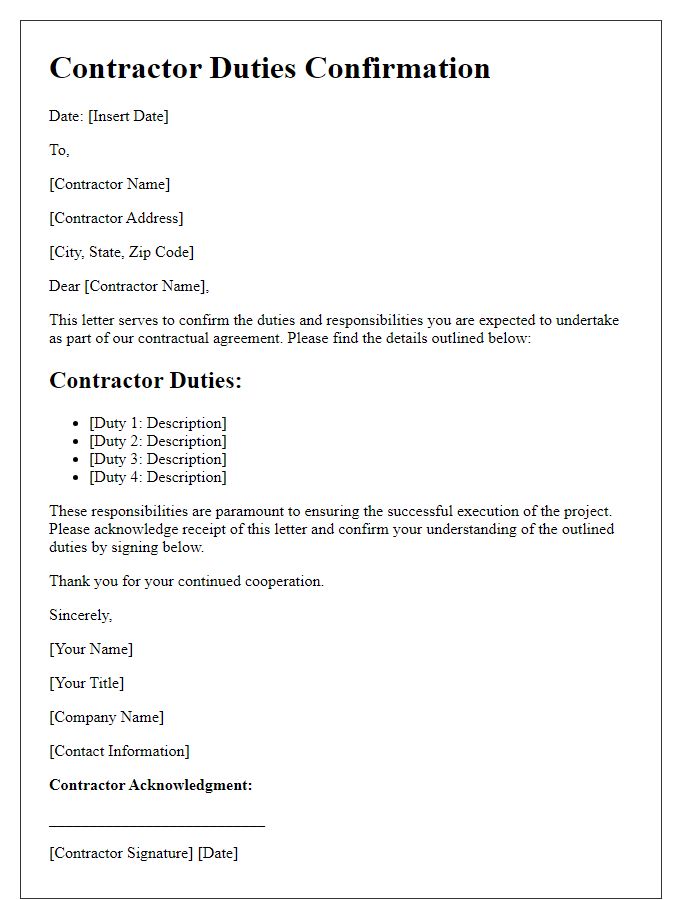
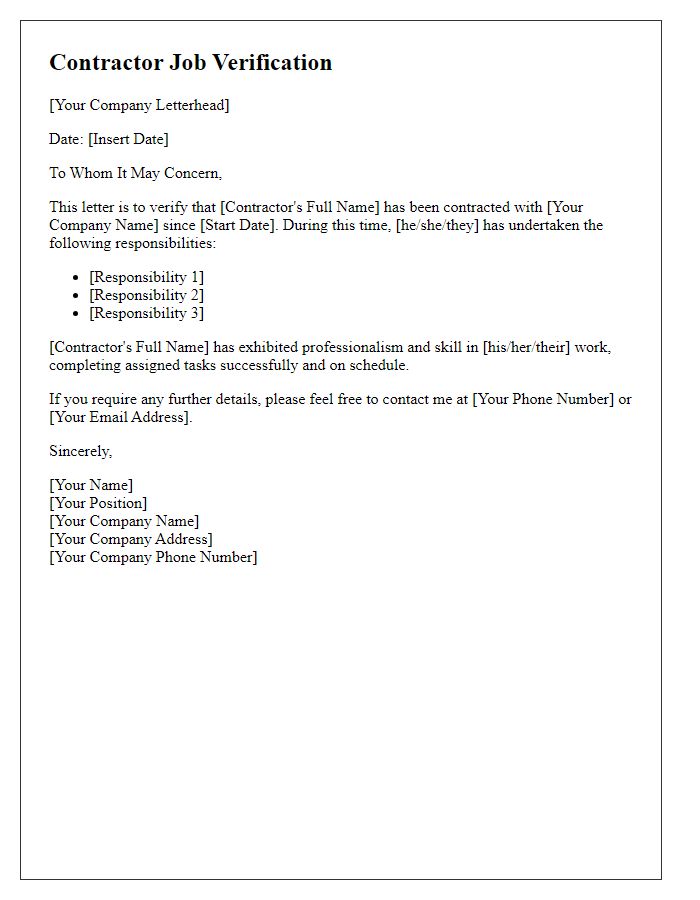
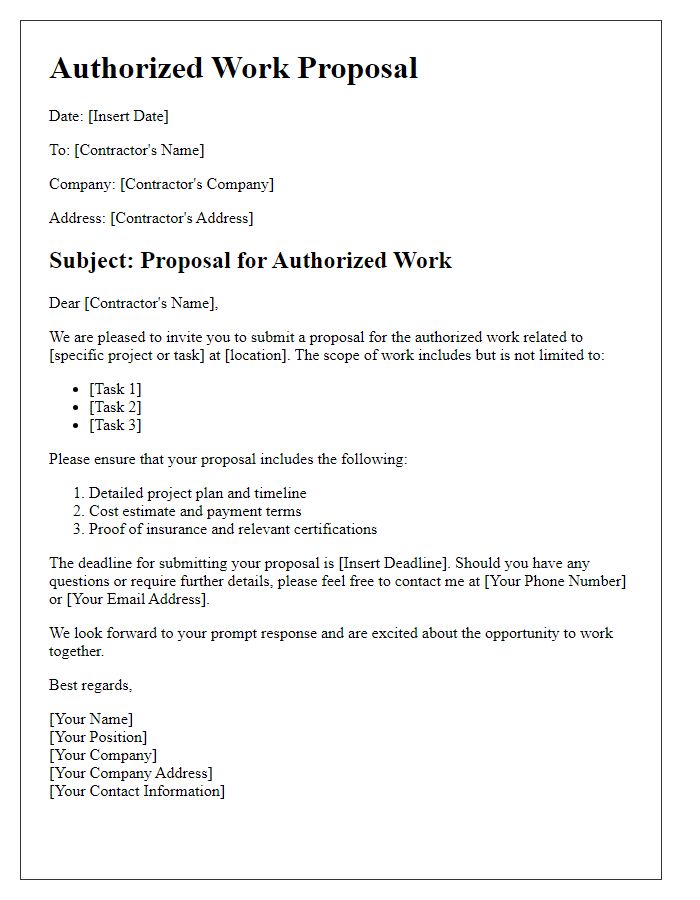


Comments